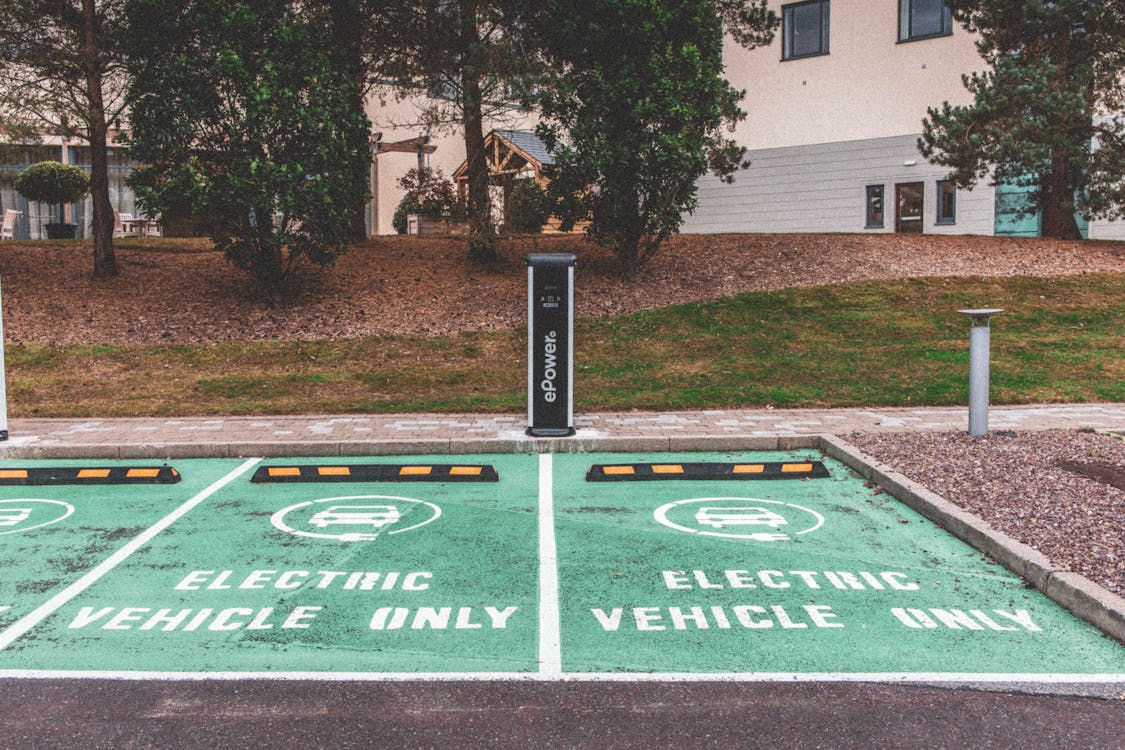These days, electric vehicles are everywhere you look. Can EV startups still get a foot in the door of the industry?
Electric Vehicles Industry: A Brief Overview
Electric vehicles (EVs) are just what they sound like: vehicles powered by electricity rather than gas. They come in a few different shapes and sizes, but generally emit significantly lower amounts of CO2 over their lifetime; depending on how much renewable energy they run on, EVs’ emissions can be three times lower than gas cars.
Today, EVs are a booming industry; according to a report by the International Energy Agency (IEA), nearly 14 million new units were registered in 2023, meaning that EVs made up almost one in five cars sold. For context, that’s a 35% increase from 2022; electric cars on the road ballooned from roughly 300,000 in 2013 to over 40 million in 2023. The biggest market is in China, which accounted for 60% of new EV registrations in 2023, followed by 25% in Europe and 10% in the US. By 2030, it’s predicted that EVs will make up 46% percent of new car sales. Much of this growth can be attributed to concerns about climate change (and governmental measures to address it), developments in technology leading to more efficient vehicles, and dropping prices.
But it’s not an easy business for everyone. Chinese EV companies reign supreme, making up around 60% of global sales and giving many Western auto giants a run for their money. Many of them missed the boat on EVs and are now struggling to catch up with the cheap, efficient EVs from China. The exception is the US’s Tesla, which played a big part in making EVs mainstream and cool. Tesla and China’s BYD are now the industry leaders, though the US’s hefty tariffs on Chinese EVs mean they don’t always compete in the same markets.

For EV startups, the industry is a double-edged sword. There’s clearly a huge addressable market, but entering it means investing billions before you earn your first dollar. And there’s no guarantee of success. In the past few months alone, several heavily hyped startups gracing many a listicle either went under or faced dire financial straits; these include Canoo, Arrival, Fisker, and Onto. It’s therefore not surprising that the more successful startups tend to focus on new niches in the industry as well as integration methods instead of reinventing the electric car.
5 EV Startups & Independent Electric Car Companies
Sila

Founded in 2011 by Tesla’s seventh employee, Sila is one of the older EV companies on this list. But it’s clearly got a game plan; as other battery startups flounder, the US-based company managed to snap up a $375 million funding round in mid-2024, bringing its total amount raised to $1.31 billion. Its secret? Replacing graphite anodes used in lithium-ion batteries with silicon. The result, called Titan Silicon, will have 20% more energy density than ‘the industry’s best-performing cells,’ with future iterations featuring a 40% increase. As reported by TechCrunch, Sila hopes to use its recent cash infusion to finish its latest factory to build batteries for the likes of Mercedes-Benz and Panasonic by the end of 2025.
EnviroSpark

EV charging is essential to integrating EVs into everyday life; with $4.9 billion raised by 65 startups (as of June 2024), it’s one of the busiest subindustries in the EV sector. At the forefront is EnviroSpark, an EV startup founded in 2014 and based in the US. It designs, installs, and operates EV chargers throughout the US and has about 9,200 charging ports deployed so far. The company has raised $65 million so far, including a recent influx of $50 million.
Electra

While the US has EnviroSpark, Europe has Electra. The EV startup, founded in 2021 and based in France, is building up a network of ultra-fast charging stations around Europe; each station is made up of several charging points, of which Electra aims to have 15,000 (across 2,200 stations) by 2030. Customers can book charging slots ahead of time, with charging advertised to take as little as 10-30 minutes. Today, Electra has 349 stations in operation across a handful of European countries, with another 97 under construction. At just three years old, it’s already raised $550 million, including a cool €304 million in early 2024 to expand its network.
ChargeGuru

The EV startup scene moves fast; companies seem to evolve, go bust, or merge at a breakneck pace. A case in point is Chargeguru, another French charging startup founded in 2018 that in November 2023 acquired Zecharge, also French and founded in 2014. The startup focuses on chargers-installation services for homes and businesses; it offers gear from a range of companies and promises a simple, hassle-free process. So far, Chargeguru has equipped 16,000 buildings with their EV chargers across Europe and is active in 8 countries.
Volta Trucks

Last year, Sweden-based EV startup Volta had $498 million in its pockets and orders for 5,000 of its electric trucks – but then it all came crashing down when one of its suppliers went bankrupt. It has since been bought up by Luxor Capital Group and is now back in business (though it’s not yet back at its previous level). It might face competition from Chinese companies, but the startup is targeting the European market – where sales of electric trucks nearly tripled in 2023 – as well as the Gulf due to its governmental incentives for EVs (as reported by The National).
Why Might Companies Be Interested In Investing In Electric Car Startups?
Investing in or partnering with independent electric car companies is a good way to integrate them right into a business. This has several benefits for the investing company. The juicy tax credits are one of them; in the US, for example, using EVs for business purposes can qualify for tax exemptions if they use certain electric vehicles or charging equipment. Public image is another big benefit; replacing the company fleet with EVs makes for some great PR. And for established car or rideshare companies, investing in EV startups is an easy way to diversify the business and get a head start on the rise of EVs.
But investing in EV startups is a particularly useful way for other companies to get in on EVs; lacking the lethargic bureaucracy of more established businesses, they move and innovate faster, allowing them to better adapt to industry trends. They can be a quick and easy way for businesses to integrate EVs without the headaches, whether it’s the cars themselves or the gear to support them. Charging startups are a great case study; EnviroSpark, for example, has partnered both with carmakers (Tesla, Volkswagen, and Ford) as well as other businesses (Walmart, IHG Hotels & Resorts, AION Partners) for its installations. Meanwhile, fellow charging startup Volta (not to be confused with Volta Trucks) was acquired by Shell last year.
On the vehicle side, established car companies might invest in startups to help develop their own electric cars; such was the case with Arrival, a UK-based EV startup backed by Hyundai and Kia. Uber also partnered with the company to develop a custom-built EV. But these partnerships also highlight the perils of working with EV startups: Arrival collapsed in early 2024.
The Future of EV Startups
Given that the EV industry could be worth over $800 billion by 2030, you’d think it’d be a safe bet for electric car startups – but that’s far from the case. The market is getting more saturated by the day; more and more legacy car companies are moving ahead with their own EVs, making it harder than ever for startups developing vehicles to get in. It wasn’t always like this; Lucid and Rivian, two ex-startups founded in 2007 and 2009 respectively, boast the biggest chances of success amongst younger companies since they got in before EVs hit the mainstream.
But that window of opportunity has now closed. Add to that the mountain of logistical obstacles facing EV startups – such as high upfront costs and rising interest rates – and it’s not surprising that they’re dropping like flies. ‘Even if there’s a flurry of and a ferment of a lot of new firms right now, history would tell us it won’t last,’ John Paul MacDuffie, a professor at the University of Pennsylvania’s Wharton School of Business, told CNBC. The future looks brighter for startups supporting, rather than building, EVs, such as the burst of charging companies popping up; after all, the success of every EV depends on widely available charging stations.
But will all that be enough for the planet? According to a recent report by Bloomberg NEF, it might not be; the only sector of EVs poised to hit net zero by 2050 is three-wheeled vehicles. And even though EVs on the road are projected to rise to 476 million by 2030 and 722 million by 2040, reaching net-zero would require 679 million and 1.1 billion vehicles, respectively. There’s clearly work left to do – but while startups might not be leading the charge anymore, their products could still play an key role if they play their cards right.








